- Home
- Simon Winchester
The Meaning of Everything Page 3
The Meaning of Everything Read online
Page 3
The grammar of England's post-Roman times—of which we know something from studies of great epic poems like Beowulf, or the story of the shepherd-turned-poet Caedmon, as told by the Venerable Bede, or the famous Colloquy written by the eleventhcentury Abbot of Eynsham, Ælfric—has a relict Teutonic feel about it. The order of words in a sentence, the inflections at the ends of words signalling the task they perform, both present a language steadily evolving into something very different from Latin, something that approaches the modern idiom but which has much remaining in common with the manner of speech in the north Germany of the time: `… then arose he for shame from the feast,' Ælfric writes, `when he this answer received.'
The vocabulary, though, is much more familiar to our modern ears. A raft of pronouns and prepositions—us, for, to, him, in, he— are there in Old English, to languish unchanged for more than 1,000 further years (not, however, that their meanings were always identical to the sense the words possess today). A number of verbs have the same or a quite similar look and sound: singan for sing, stod for stood, ondswarede for answered. Ingang and utgang are not dissimilar to the Eingang and Ausgang one might see today in Frankfurt railway station.
And in Beowulf a large number of all words in the text are complex combination words, known today as kennings. One such is beadoleoma, which means sword, but which translates literally as a combination that will be well known to fans of Star Wars, `battle light'. There are in addition some 50 words in Old English which signify the sea—most of these are kennings, and they include handsome and poetic combinations such as hwaelweg (whaleway), drencflod (drowning-flood), and streamgewinn (waters-strife). None survives today, more's the pity. Nor do either waegflota or waeghengest—wave-floater or wave-steed—by which the Old English meant what we today call a ship.
The reign of Old English was to end in the twelfth century; but before it did so, two more linguistic invasions took place, enriching yet further—with words from Latin and from Norse—the steadily swelling vocabulary of the islands.
New Latin words entered the lists between the eleventh and twelfth centuries, largely as a result of the proselytizing work of Christian missionaries (all of them Latin-speaking) who, some long while earlier, had flooded across the British Isles, eager to save souls. They claimed to be bringing `the Word'; to a remarkable and unforgettable extent, but somewhat at a variance from what they intended, so they did.
Religious words, not surprisingly, make up a goodly proportion of the list. Although a trinity of key words that attest to the very heart of belief—God, heaven, sin—are actually of Germanic origin, Latin-originated words first recorded either in the eleventh century or some while later—many coming into Middle English through French—and dealing with churchly mechanicals, are there in abundance: abbot, alb, anchorite, angel, antichrist, canticle, chalice, cloister, font, idol, martyr, pope, priest, prophet, psalm, relic. But God was not all: visitors from the Continent over several centuries brought with them the names of plants, fruits, and trees hitherto entirely unfamiliar to the islands: cedar, cucumber, fig, ginger, laurel, lentil, lovage, radish; and they told of exotic animals quite unknown to the Teutonically-influenced Britons—elephant, leopard, scorpion, tiger. The fact that dirge, marshmallow, periwinkle, and sock also quite probably entered the islands at around this time and probably from the same ultimate source might seem at first blush slightly more perplexing, except that the visitors probably sang in a dull monotone, knew more than a little of the local botany, and wore soft foot-coverings to protect them against the raw English winters—and moreover had names for them all.
New Norse words were introduced in a far less congenial fashion. The Vikings began raiding and pillaging England in the eighth century; the Danes did much the same a century later, first ruling all of north-east England under terms of a treaty to which they submitted the weakling English, then in 991 going further and seizing the English throne, running all England's affairs for the next 25 years. Along with making mayhem in, or a fiefdom out of, England, both sets of northern adventurers introduced into English hundreds of their own words—many that turned out to be of the most profound importance and yet, in terms of their exoticism and interest, among the most prosaic in the tongue.
Both, same, seem, get, give, they, them, and their all stem from these northern, ice-bound people too. Skirt, sky, scathe, skill, and skin employ a well-known two-letter Scandinavian beginning. And we can somehow understand that the gloomy antecedents of Ibsen would have given to English the likes of awkward, birth, dirt, fog (perhaps), gap, ill, mire, muggy, ransack, reindeer, root, rotten, rugged, scant, scowl, and wrong. There is rather less obvious connection with cake, sprint, steak, and wand—though these jollier words did indeed come from the Norsemen too. As did Thursday—or rather, it was modified by them, since an earlier version of the day that honoured Thor did in fact appear in Old English itself.
But for all this, Old English was first and foremost a homegrown language—by far its greatest component being the Teutonic stock of words gifted by the Jutlanders and Frisians and Angles who began to drift into the population in the wake of Hengist and Horsa. The total accumulation of Latin and Norse loanwords (and a triflingly small number of probable French lendings, too—among them words like prisen, castel, and prud, which equate to today's prison, castle, and proud ) amount to no more than three per cent of Old English's word stock; Germanic words account for almost all the rest. And though we glibly say that the language as written and spoken 1,000 years ago is recognizable to the modern ear—it is certainly more so than the Celtic of the very early British—the numbers suggest otherwise: something like nine out of every ten of the Old English words have since fallen into disuse. It was really not until Old English began to transmute itself into Middle English that we start to see and hear and read something that is a simulacrum of what we see and hear and read today.
It was the invasion of the Norman French that changed everything. The defeat of King Harold at the Battle of Hastings in 1066 resulted in the installation of a dynasty of French kings on the throne in London (the first, the Hastings victor William I, actually spending very little time in England), and for the next 300 years the French held sway over almost all areas of English power, governance, and culture. Norman French became the language of England's administration and of the country's politer forms of intercourse. Old English came briefly to be despised, regarded haughtily as the language of the peasant and the pleb.
And yet, though much changed, Old English did in fact survive. It survived in a way that the British of the Celts did not manage to survive the Germanic invasion six centuries before. After a century-and-a-half of linguistic mystery when no one is certain quite what happened to the language, Old English lived on, transmuted itself into what is now called Middle English, adopted thousands of new loanwords from the French and became stronger by doing so (doubling its word stock in no time at all, to the 100,000 or so words of the twelfth-century lexicon), and finally emerged, fully established, to be displayed to greatest advantage for all time in the writings of that most impressive of the early figures of English literature, Geoffrey Chaucer.
Since this chapter aimed principally to explain (or remind those who know) about the origins of the English vocabulary, and about the means that have been sought to catalogue and enumerate its complicated immensity, it is unhappily (because it is so fascinating) of little relevance to write much about Chaucer's literary achievement, or about the sheer beauty and staggering accomplishment of his poetry and prose. He tells us how the English men and women of the fourteenth century spoke to one another; he tells us how they cursed and complained and questioned and told each other jokes; he ranges in his interests from the highest-flown kind of rhetoric to the most banal of domestic chit-chat. It is the quantity, the breadth, and the assortment of his writings that elevate him above all others of his time; and more's the pity that we cannot linger here to revel in his legacy.
Chaucer's vocabulary, reflectiv
e of all that was said and written around him, shows clearly the great measure of change that by his time had come upon the language. In the 858 lines in his Prologue to the Canterbury Tales, for example, there are almost 500 French (or rather, Norman French) loanwords. Historical studies suggest that by 1365, some 300 new French words were being incorporated into English every year. But it must be stressed that it was not that French was being spoken; the English language, reviving itself from its mysterious dark age, was including and assimilating new French-originated words, speakers and writers using them as replacements for words that had vanished during the time when spoken and written French did dominate the nation's language.
And so we find, for instance, words (from the Norman French—and in many cases, of course, ultimately from the Latin or the Greek) of administration and law—accuse, adultery, chamberlain, crime, decree, duke (though not lord, lady, knight, or earl, which are all home-grown Old English, displaying Orwell's favoured Anglicity), inheritance, larceny, libel, messenger, pardon, parliament, reign, revenue, sue, treasurer, trespass, verdict, warrant, and warden. There are religious words, inevitably—cardinal, choir, saint, virgin; there are French words for foodstuffs—beef, pork, sausage, sugar, tart; for fashion—broidery, brooch, chemise, petticoat, satin, taffeta; for science— gender, geometry, medicine, plague, pulse, stomach, surgery; and for the home—blanket, closet, pantry, porch, scullery, wardrobe. There are, besides, a slew of phrases still familiar in Modern English: have mercy on, take leave, learn by heart, and on the point of, for example, 2 all have their origins in this wonderfully energetic period in English linguistic history.
And then came William Caxton, and with him the very beginnings of Modern English. It was in 1474 that, having learned the techniques of printing from the master craftsmen of Cologne, this 50-year-old Kentish businessman set himself up in Bruges and created, on a wooden press of his own making, the first ever book to be printed in English, The Recuyell of the Historyes of Troye (which, in addition, he had translated from the French—recuyell meaning, essentially, compilation). The reception of this 700-page work convinced him: he had no doubt at all now that the new technology which he had mastered in Europe, if taken back home to England, would have an incalculable effect both on society at large and on the nature of the language that people would read from his printed books and papers and pamphlets, and which in turn they would come to speak.
And so two years later he came to London, and established his own print shop and publishing house beside Westminster Abbey. From the hands of Caxton and his apprentices came some 103 printed works 3 —one edition of Chaucer's Boethius and two of the Canterbury Tales among them. Moreover, the books that he made were (as Caxton was not shy of advertising) available to almost all, for the simple reason that they cost almost nothing to produce. Compared to the laborious and costly hand-copying of manuscripts, the books and pamphlets that were now being turned off his creaking wooden presses were inexpensive in the extreme. `If it plese ony man … to bye …', announced one of Caxton's printed flyers, `… late hym come to Westmonester … and he shal have them good chepe.' What more eloquent declaration could there ever be of the lasting benefits of printing?
With the advent of printing, as exemplified by Caxton's house, came a greater awareness of the multifarious dialects in which English was then both spoken and written, and the beginnings of a feeling that there should be a standard written form of the language. A famous story relates to Caxton's own puzzlement over the word `eggs'—should he use the northern form, egges, or the southern version, eyren? It took many years before questions like this were fully answered—a question over the use of apostrophes, for example, never being fully answered to this day.
Any remaining hopes, nurtured as they were by a small corps of romantics, that the language might still be shorn of all its nonGermanic words and returned to the purity of its ancestry were to be dashed during the two centuries that followed the Caxton revolution—the Renaissance. With the furious development of science, arts, exploration, and travel, the language became ever more steadily enriched—unkinder souls might say polluted—by an almost uncountable mass of newly imported words from abroad. The size of the lexicon had doubled in the years after the Norman invasion; in the Renaissance it doubled again, such that by the beginning of the seventeenth century there were reckoned to be at the very least 200,000 knowable words waiting to be used.
The conventional sources—Latin, Greek, Italian, Spanish, Portuguese, and French—supplied many of them; but now, with the wanderings of the fleets and their inquisitive occupants producing words from all over, the English vocabulary was enhanced not merely by the usual suspects but by words from India and Turkey, Arabia and Malaya, Japan and the native peoples of North America, and 50 other countries besides.
Some of the more romantically inclined writers of the day despised the trend—John Cheke, for example, was still vainly wishing for a return to his `clean and pure tunge'. On the other hand some modernists, like the author and diplomat Sir Thomas Elyot, positively craved foreign words, as though they were plagued by some curious lexico-xenophilic sickness. Elyot was on intimate terms with King Henry VIII (the monarch loaned him books from the royal library, to help with a Latin±English dictionary he was then compiling), and was said to be a brilliantly skilled translator, widely travelled, and a hugely competent linguist. He wished above all to have his native English `augmented' and `enriched' with new words from around the world, to describe and define all the wondrous new objects and ideas that the Renaissance was bringing in its wake. And by and large, he got his way. The purists, never a formidable army at the best of times, were during the Renaissance being routed. English in the sixteenth century was getting larger and larger, and by doing so was fast strengthening itself for its unanticipated role as the coming language of the world. Analyses suggest that between 1590 and 1610 around 6,000 new words were being added to the lexicon every year—more than at any time in history (save possibly, we feel intuitively, for today).
There are far too many words newly introduced in the Renaissance to be listed here, in a short book which is simply the story of one dictionary, and is by no stretch of the imagination a dictionary itself. But sometimes the loveliness of the assemblages are just too beguiling to pass up: so it is pleasing to note that during the 200 years following Caxton, English welcomed from abroad such words as anonymous, atmosphere, catastrophe, criterion, delirium, enthusiasm, fact, idiosyncrasy, inclemency, lunar, malignant, necessitate, parasite, pneumonia, sculptor, skeleton, soda, vicinity, and virus (all from either Latin or Greek); battery, bayonet, chocolate, confront, docility, grotesque, moustache, passport, tomato, and volunteer (from or through the good offices of the French); balcony, cupola, ditto, granite, grotto, macaroni, piazza, sonata, sonnet, stanza, and violin from Italian; anchovy, armada, armadillo, cannibal, mulatto, Negro, sombrero, and yam from or via either Spanish or Portuguese; and a gallimaufry of delights from some 50 other contributing tongues, including amok, paddy, and sago (from Malay), caravan 4 and turban (Persian), kiosk, sherbet, and yoghurt (Turkish), raccoon and wampum (Algonquian), cruise, frolic, and yacht (Dutch), knapsack (Low German), as well as guru from Hindi, ketchup from Cantonese, sofa from Arabic, shogun from Japanese, sheikh from Arabic, and trousers from the Gaelic spoken by the Irish.
Shakespeare—as vital a purveyor of what would go on to become Modern English as William Caxton had been two centuries before him, and as were the various great English bibles produced shortly after him—was the first to employ a great many of these words. By doing so he offered actors the chance to enrich the language of those who came to see his plays. In Othello, for example, the Moor entreats the Duke of Venice to offer his wife Desdemona `Due reference of place and exhibition, With such accomodation and besort as levels with her breeding', and thereby offers the first known usage (Othello was published in 1604) of the word accommodation 5 . Likewise, when Antonio and Bassanio's friends are chatting in the opening scene of
The Merchant of Venice, Solanio gives us the first use of the word laughable—`they'll not show their teeth in way of smile Though Nestor swear the jest be laughable'. Laugh itself is a word from the widely approved Old English; in 1596 Shakespeare added the Norman French suffix -able, and lo! the combination still exists happily today, four centuries later.
(It has to be said that Shakespeare did advance the cause of a number of words—like besort—that never made it, or which staggered along lamely for only a short while. Among those he used, but he almost alone, were soilure, tortive, and vastidity, which mean, as one might expect, staining, twisted, and bigness. In these cases, and a score of others, his clever Latinate constructions fared rather less well than the simpler old synonyms from northern Europe. But he also gives modern readers such hyphenations as baby-eyes, pell-mell, and ill-tuned, and dozens of insults that employ the word knave—of which whoreson beetle-headed flap-ear'd knave (from The Taming of the Shrew) has become a minor classic.)
And since Shakespeare—and since William Hazlitt and Jane Austen, since Wordsworth and Thackeray, the Naipauls and the Amises, and the fantasy worlds of the hobbits and Harry Potter, and since science and sport and conquest and defeat—the language that we call Modern English has just grown and grown, almost exponentially. Words from every corner of the globalized world cascade in ceaselessly, daily topping up a language that is self-evidently living, breathing, changing, evolving as no other language ever has, nor is ever likely to.

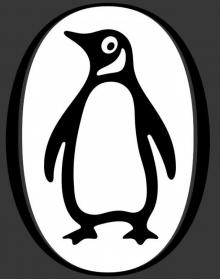 The Surgeon of Crowthorne
The Surgeon of Crowthorne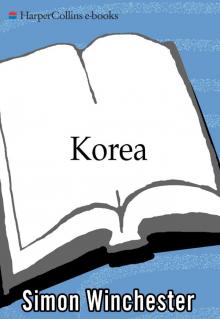 Korea: A Walk Through the Land of Miracles
Korea: A Walk Through the Land of Miracles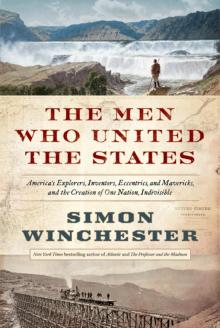 The Men Who United the States: America's Explorers
The Men Who United the States: America's Explorers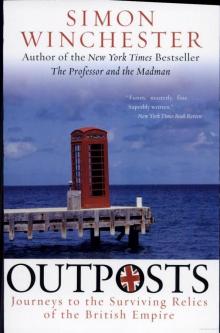 Outposts: Journeys to the Surviving Relics of the British Empire
Outposts: Journeys to the Surviving Relics of the British Empire Atlantic: Great Sea Battles, Heroic Discoveries, Titanic Storms
Atlantic: Great Sea Battles, Heroic Discoveries, Titanic Storms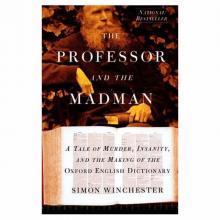 The Professor and the Madman: A Tale of Murder, Insanity
The Professor and the Madman: A Tale of Murder, Insanity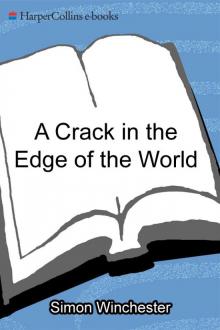 A Crack in the Edge of the World
A Crack in the Edge of the World The Perfectionists: How Precision Engineers Created the Modern World
The Perfectionists: How Precision Engineers Created the Modern World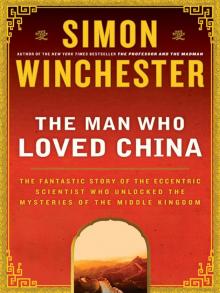 The Man Who Loved China: The Fantastic Story of the Eccentric Scientist
The Man Who Loved China: The Fantastic Story of the Eccentric Scientist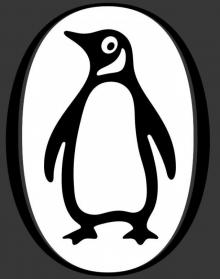 The River at the Center of the World: A Journey Up the Yangtze
The River at the Center of the World: A Journey Up the Yangtze The Fracture Zone: My Return to the Balkans
The Fracture Zone: My Return to the Balkans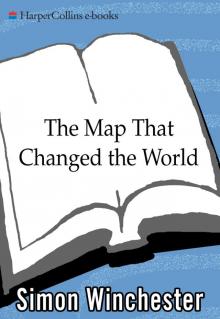 The Map That Changed the World
The Map That Changed the World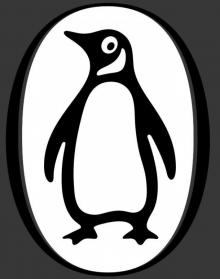 Krakatoa: The Day the World Exploded
Krakatoa: The Day the World Exploded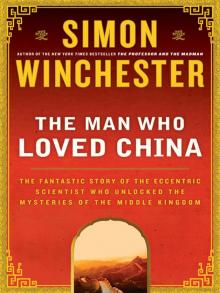 The Man Who Loved China
The Man Who Loved China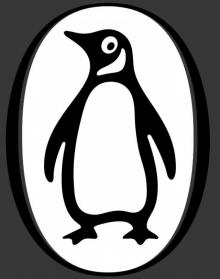 The River at the Centre of the World
The River at the Centre of the World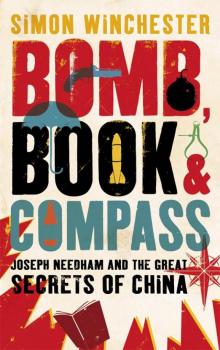 Bomb, Book and Compass
Bomb, Book and Compass The Perfectionists
The Perfectionists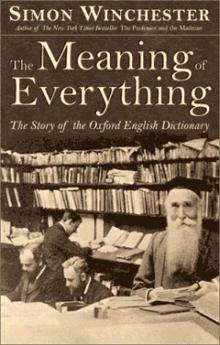 The Meaning of Everything
The Meaning of Everything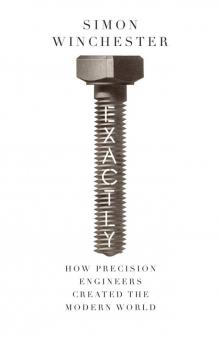 Exactly
Exactly Atlantic
Atlantic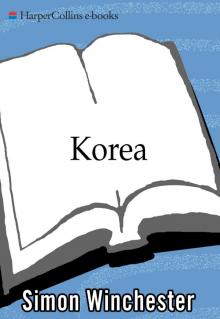 Korea
Korea The Fracture Zone
The Fracture Zone Pacific
Pacific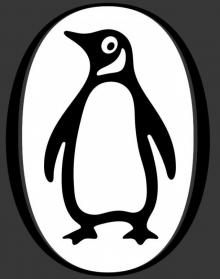 Krakatoa
Krakatoa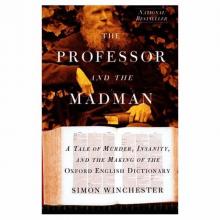 The Professor and the Madman
The Professor and the Madman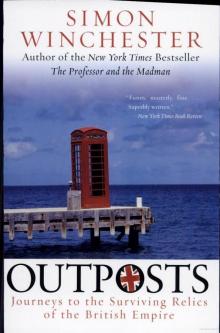 Outposts
Outposts